Lets get some things straight
before I get old and uncool.
First published as
Rules for My Unborn Son in the United States in 2009 by St Martins Press, an imprint of Macmillan Publishers. First published in Great Britain in 2016 by Atlantic Books, an imprint of Atlantic Books Ltd. Copyright Walker Lamond, 2016 The moral right of Walker Lamond to be identified as the author of this work has been asserted by him in accordance with the Copyright, Designs and Patents Act of 1988. Image copyright information . All rights reserved.
No part of this publication may be reproduced, stored in a retrieval system, or transmitted in any form or by any means, electronic, mechanical, photocopying, recording, or otherwise, without the prior permission of both the copyright owner and the above publisher of this book. 10 9 8 7 6 5 4 3 2 1 A CIP catalogue record for this book is available from the British Library. Hardback ISBN: 978 1 78649 0 087
E-book ISBN: 978 1 78649 0 094 Printed in Great Britain Atlantic Books
An Imprint of Atlantic Books Ltd
Ormond House
2627 Boswell Street
London
WC1N 3JZ
www.atlantic-books.co.uk for ARTHUR  Contents INTRODUCTION
Contents INTRODUCTION  B oys need rules. No Spitting. No Swimming. No Fighting.
B oys need rules. No Spitting. No Swimming. No Fighting.
We dont always like them, but for the most part, they are necessary. Rules keep us safe, eliminate uncertainty, and encourage harmonious social interaction. Yield to Pedestrians. Black Tie Required. They are the simplest and most effective way to pass down tried and true institutional knowledge through the generations. In short, rules are GOOD! But somewhere along the way, rules got a bad name. People wanted freedom.
Authority was questioned, rules were broken, dress codes banished! Rules were seen as antiquated obstacles to individualism and progress. Barbers were ignored, ties packed away. And the game of life suddenly got a bit sloppier, more uncertain, and even a bit less fun.  My father rarely wore socks, a sartorial quirk made permissible by the fact he was often the best-dressed gentleman in the room. This perhaps best exemplifies his approach to life. A vigorous dancer, a dedicated sportsman, and the tireless life of any party, he understood that a man of strong character, who took pride in his appearance and behaviour, was given the most liberty to have fun.
My father rarely wore socks, a sartorial quirk made permissible by the fact he was often the best-dressed gentleman in the room. This perhaps best exemplifies his approach to life. A vigorous dancer, a dedicated sportsman, and the tireless life of any party, he understood that a man of strong character, who took pride in his appearance and behaviour, was given the most liberty to have fun.
And so he had rules. Many of them came from his father, and presumably his father before that. They governed everything from his dress to his business dealings and were based on the notion that there are certain things a Good Man does and certain things he does not do. My father was a Good Man. And he was the kind of father I aspired to be. He passed away shortly after my twenty-second birthday.
This small book began simply as a way to preserve the lessons my father had taught me and perhaps, add my spin on what makes a Good Man. I hoped to have a son of my own one day, so I thought it best to write it all down before the mayhem of actual fatherhood made me too soft or too sanctimonious, and most importantly, before my own childhood was too distant in the rear-view mirror. It would be a father-to-bes promise to his unborn son: To get some things straight before I get old and uncool. Of course, the list needed a bit of updating. My dad could fold a mean pocket square, but he didnt have much to offer on Internet etiquette. Rules for My Son became a set of instructions for being a good man and a good father, not just a list of commandments for any future progeny. Rules for My Son became a set of instructions for being a good man and a good father, not just a list of commandments for any future progeny.
My father and I are not the first men to attempt to define and defend the qualities that make up the modern gentleman. In the book I acknowledge the influences of some very fine men who have offered wise and practical advice through the ages either through their words (George Orwell, Buckminster Fuller, Mark Twain) or their example (Fred Astaire, Mick Jagger, David Bowie). Some of the advice the reader may have heard before. And I should hope so, as many of the rules are distillations of some universal lessons in ethics and etiquette. I have made efforts to cull the classics from the outmoded. After all, not all that is old is good.
However, what I hope makes Rules for My Son unique is the inclusion of lessons drawn from my own experiences the good, the bad, and the ugly. The rules included herein may evoke from the reader a hearty endorsement or a spirited objection. Or perhaps inspire a sentimental journey back into the readers own childhood. And maybe, for a particular kind of discerning young parent, Rules for My Son will be just what it says it is a good old-fashioned book of rules for you and your family. I hope it proves useful. Walker Lamond
Washington, D.C.
When in doubt,
wear a tie.  Ride in the front car
Ride in the front car
of a roller coaster.  See movies on
See movies on
the big screen.  Men with facial hair have
Men with facial hair have
something to hide.  Be a vigorous dancer.
Be a vigorous dancer.  Be a strong swimmer,
Be a strong swimmer,
especially in the ocean.  Avoid gossip.
Avoid gossip.  Dont waste time with
Dont waste time with
a fancy watch.  Talent is learned.
Talent is learned.
Learn to sing.  Stand up for the little guy.
Stand up for the little guy.
Hell remember you.  We are what we pretend to be,
We are what we pretend to be,
so we must be careful about
what we pretend to be.  We are what we pretend to be,
We are what we pretend to be,
so we must be careful about
what we pretend to be.
KURT VONNEGUT Avoid affectations,
lest they become
habits.  Buy seasonal fruit from
Buy seasonal fruit from
your local market or
greengrocer.  Dont attempt a dialect other than your own,
Dont attempt a dialect other than your own,
unless its in the script.  Men should not wear sandals.
Men should not wear sandals.
Ever.  On stage is no time to be shy.
On stage is no time to be shy. 

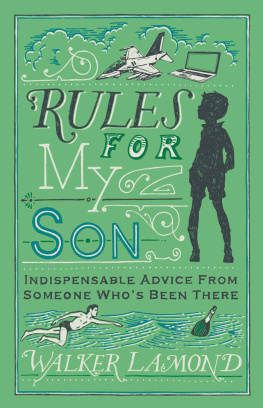

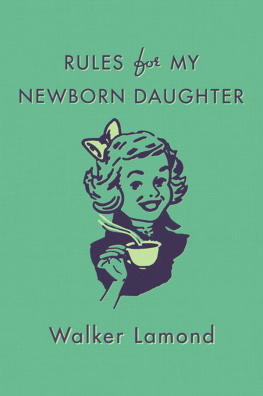
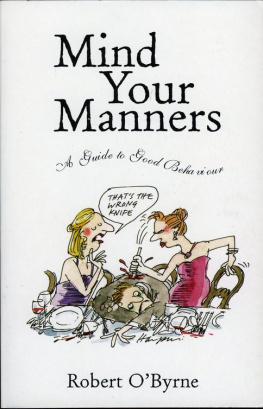
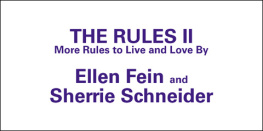

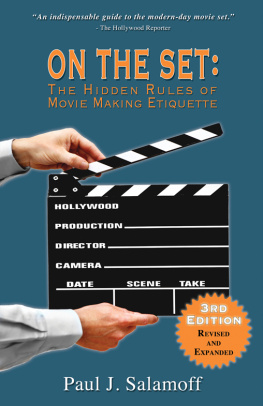

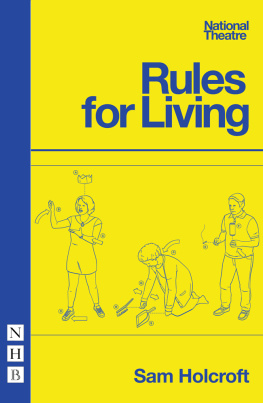

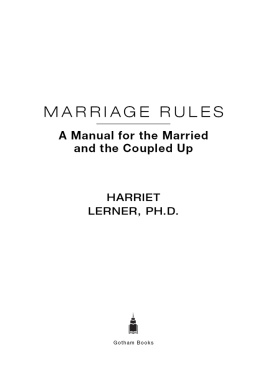


 Contents INTRODUCTION
Contents INTRODUCTION  Be a strong swimmer,
Be a strong swimmer,